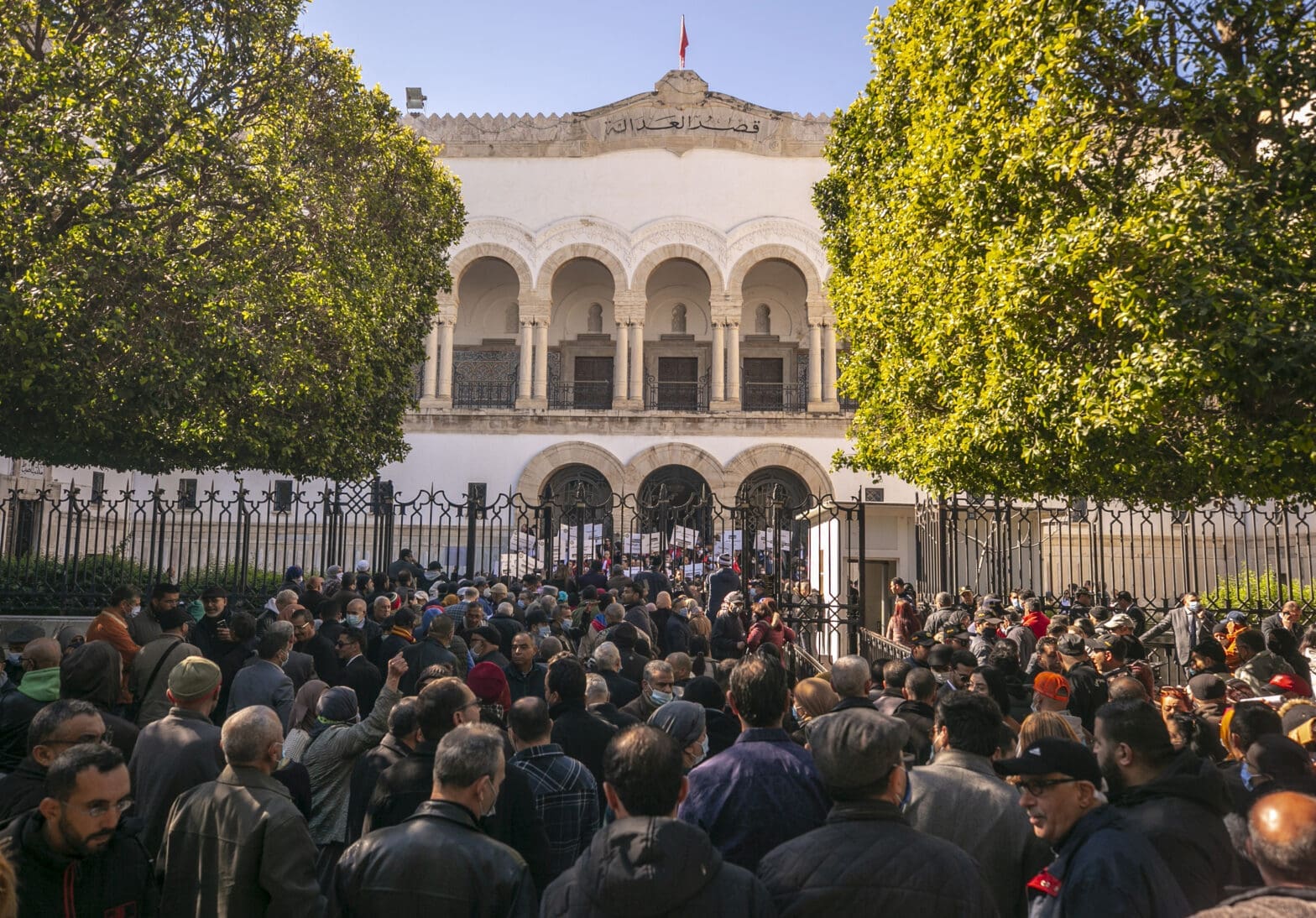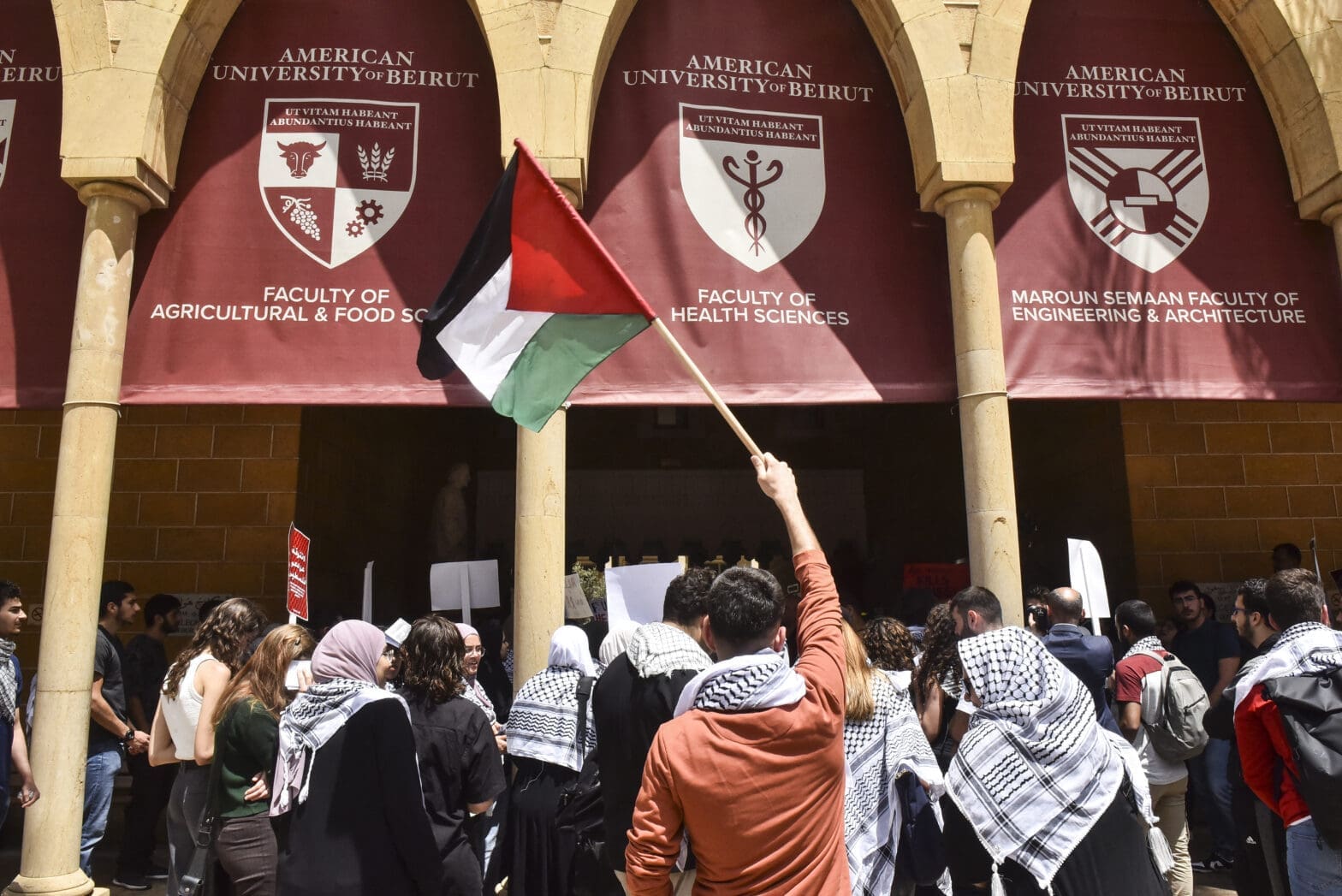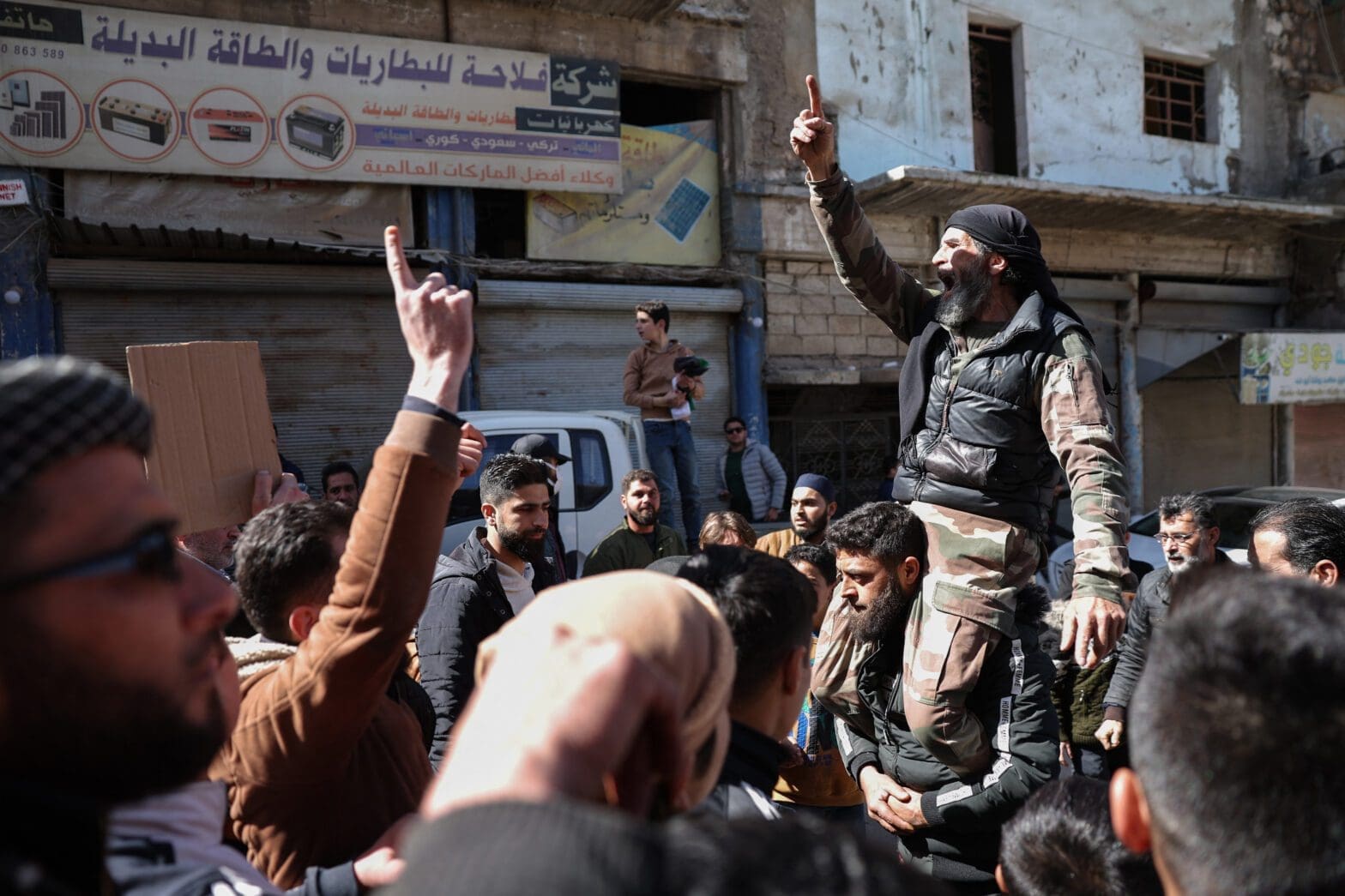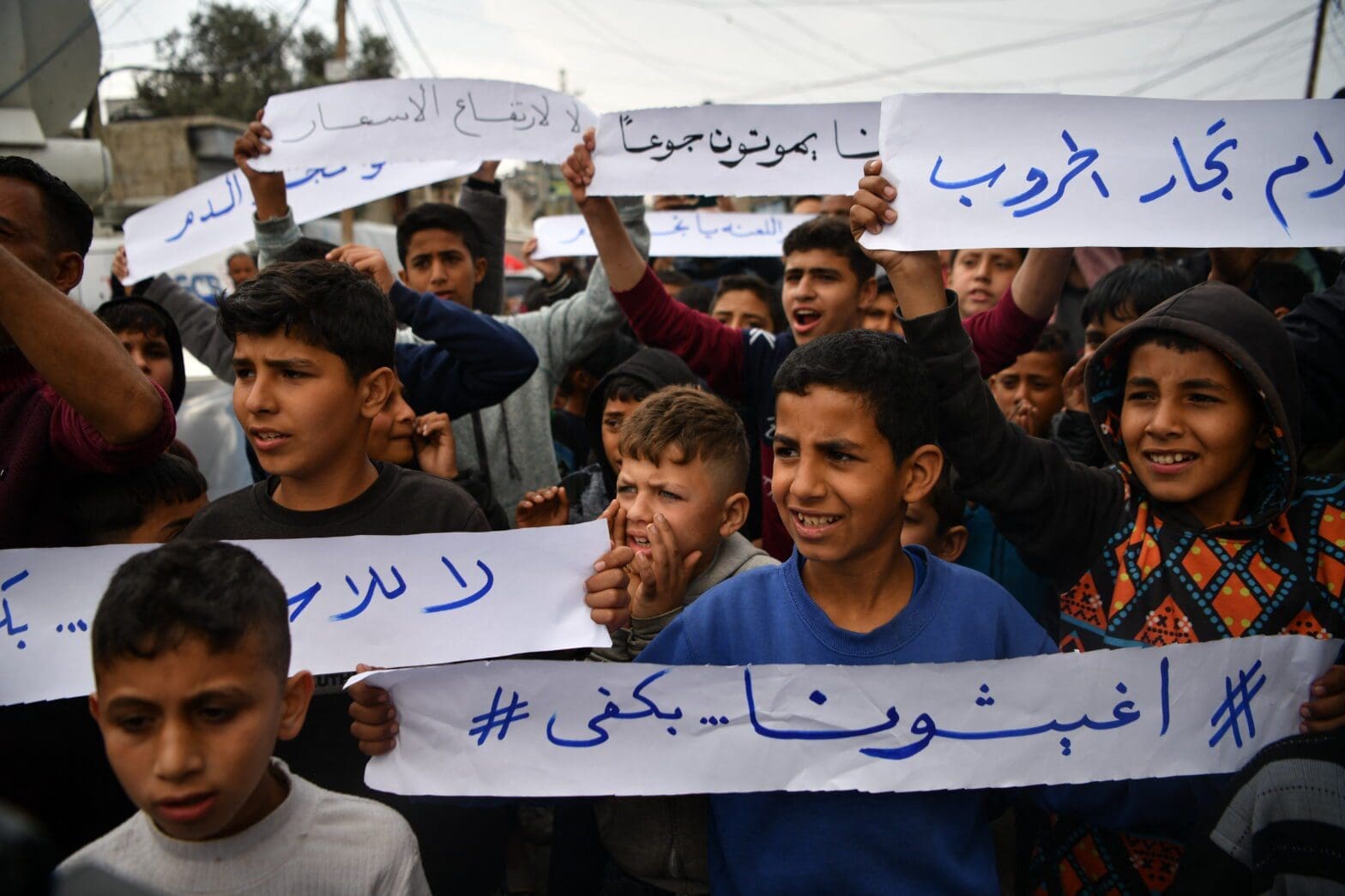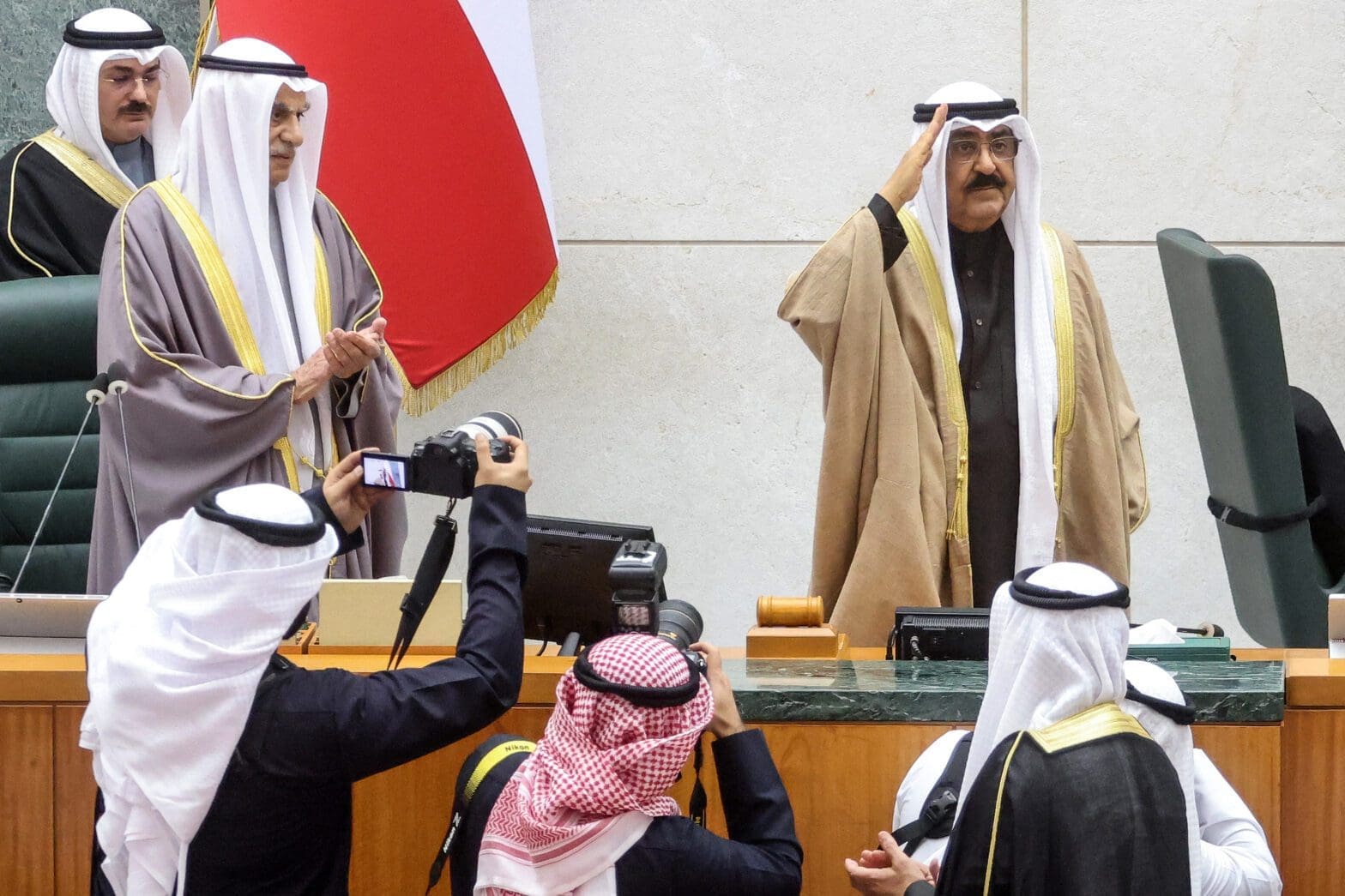When regulators began discussing adjustments to the European Union’s Artificial Intelligence Act of 2024, mere months after its passage, it was a clear sign of the regulatory challenges in this sector. The comprehensive legislation was the first of its kind, and even seasoned regulators like the EU were struggling amid political and corporate pressure, unable to set realistic and effective measures to guide rapid advances in AI technology. For observers in the Gulf, these challenges were a warning sign of the urgent need to balance innovation with risk management. … Continue reading Why the Gulf States Share in the AI Governance Dilemma
Afkar Issue: MENA Governance
As War Looms, Lebanon Is Forced to Negotiate Under Fire
When Lebanese President Joseph Aoun announced in October that his country was prepared to engage in indirect negotiations with Israel, it marked a rupture with decades of political taboo—and was a tacit admission of how precarious Lebanon’s position has become. The move was not in response to a sudden diplomatic opening. It reflected something more… Continue reading As War Looms, Lebanon Is Forced to Negotiate Under Fire
Egypt’s New Development Plan Perpetuates IMF Policies
In September, the Egyptian government issued a document entitled “The National Narrative for Economic Development: Policies Supporting Growth and Employment,” laying out a comprehensive vision for the country’s development over the next decade. The plan’s content and the timing of its release, however, suggest that it is less a new beginning than a repackaging of… Continue reading Egypt’s New Development Plan Perpetuates IMF Policies
Syria, One Year On, Is Still Emerging From the Rubble of War
The first-year anniversary of the fall of Syria’s Assad regime is a moment that invites celebration: The end of 54 years of Baathist rule and the conclusion of a 14-year civil war that took thousands of lives, displaced more than half the population, and shattered the country’s physical and social foundations. Syrians have much to… Continue reading Syria, One Year On, Is Still Emerging From the Rubble of War
Can Lebanon Disarm Hezbollah Without First Rebuilding the State?
Since August, the Lebanese Armed Forces (LAF) have been under instructions from their government to present—by year’s end—a plan to bring all weapons in the country under state control. The directive is mainly targeted at Hezbollah, the Shia-led militia that had in recent years grown more powerful than the national army. Yet for decades, Lebanon’s… Continue reading Can Lebanon Disarm Hezbollah Without First Rebuilding the State?
Saudis Consider Major Rule Change that Could Boost Their Economy
When news broke in late September that Saudi Arabia’s stock exchange was considering removing limits on foreign ownership of listed companies by the end of the year, the market surged, helping to erase losses that had made the Tadawul All-Share Index (TASI) one of the world’s lowest-performing stock markets in 2025. Although there have been… Continue reading Saudis Consider Major Rule Change that Could Boost Their Economy
Small Tax, Big Bargain: Oman Tests Its Rentier Contract
In June 2025, Oman took a step that no Gulf monarchy had attempted before: announcing plans for direct taxation starting in 2028. At 5 percent on earnings above 42,000 OMR (~$109,000)—roughly the top 1 percent of earners—the financial returns will be modest. The signal, however, is not. By introducing a narrowly targeted personal income tax… Continue reading Small Tax, Big Bargain: Oman Tests Its Rentier Contract
As Pressure Mounts, Can Lebanon Handle Hezbollah’s Disarmament?
The recent visit of U.S. special envoy Tom Barrack to Beirut has revived the perennial question of Hezbollah’s fate were it to give up its arms. Three weeks after handing the Lebanese government a letter demanding it take immediate steps to disarm the group, Barrack presented a roadmap for implementation that offers Beirut a window… Continue reading As Pressure Mounts, Can Lebanon Handle Hezbollah’s Disarmament?
Syria Needs Full Sanctions Relief to Truly Rebuild
On May 13, U.S. President Donald Trump announced that he would lift all U.S. sanctions on Syria. The announcement, made during his historic visit to Saudi Arabia, was a miraculous reprieve for the people of Syria, who had been struggling to rebuild their country after a devastating 14-year civil war. On May 20, European Union… Continue reading Syria Needs Full Sanctions Relief to Truly Rebuild
In Tripoli, A War on Militias Quickly Becomes a War of Militias
In the Libyan capital Tripoli, change is rarely peaceful or linear. This was starkly demonstrated once again in mid-May, when what like seemed a strategic victory for Prime Minister Abdul Hamid Dbeibah quickly spiraled into the latest in the country’s long string of political and military crises. The episode began when Abdelghani al-Kikli, the head… Continue reading In Tripoli, A War on Militias Quickly Becomes a War of Militias
Will the PKK’s Historic Disbandment Transform the Turkish Republic?
On May 12, 2025, the Kurdistan Workers’ Party, or PKK, officially declared its dissolution after nearly five decades of armed insurgency against the Turkish state. The announcement was made in parallel congresses held in the Kandil Mountains and the Zap Valley, the two iconic strongholds of the movement in northern Iraq. Two hundred and thirty-two… Continue reading Will the PKK’s Historic Disbandment Transform the Turkish Republic?
Jordan Seeks to Balance Between Dissent and Stability
At the end of April, on the heels of allegations that 16 members of the Muslim Brotherhood had taken part in a foiled domestic terror plot, the Jordanian government moved to officially outlaw the organization. The Hashemite monarchy and the Islamist opposition group have had a tempestuous relationship for decades, but this decision appears to… Continue reading Jordan Seeks to Balance Between Dissent and Stability
Seizing the Moment for Peace in Syria
As the Trump administration begins pulling U.S. troops out of Syria and openly mulling its long-term future there, the Syrian Democratic Forces (SDF)—a Kurdish-led coalition force—may soon lose its most important military and political backer. This possibility, and the wider geopolitical shifts it could bring, was likely a major factor in SDF General Commander Mazloum… Continue reading Seizing the Moment for Peace in Syria
Rebuilding Forever: Lessons of our failures
*This article is the second part in a two-part series. Read Part 1 here. If Syria’s Arab Spring forerunners have a fundamental lesson to impart, it is that achieving a symbiosis between a revolution’s leadership and its public is required to successfully transmute a deposed tyranny into a nation of self-determination and the representative state… Continue reading Rebuilding Forever: Lessons of our failures
Call to Disband PKK Reshapes Türkiye, Syria Power Dynamics
The consequences of the call by the founder of the Kurdistan Workers’ Party (PKK), Abdullah Ocalan, for the group to disband are still reverberating—not just in Türkiye but also in the wider region. Shifting alliances in Syria—exemplified by the recent agreement between the Kurdish-led Syrian Democratic Forces (SDF) and the Syrian government—confirm that Ocalan’s message… Continue reading Call to Disband PKK Reshapes Türkiye, Syria Power Dynamics
For Syria, Lessons from Our Past Failures
The Assad family, like so many tyrannies before them, allowed their power, impunity, isolation and the resultant narcissism to foster a belief that their world would never end. Assad’s supporters—both for the father, Hafez, and the son, Bashar—would chant “our leader forever.” Until the day inevitably came when their rule ended and people sang, “forever… Continue reading For Syria, Lessons from Our Past Failures
With a New Government in Charge, a New Era in Lebanon Beckons
The nomination of Nawaf Salam as Lebanon’s new prime minister alongside Joseph Aoun as president, after more than two years of political vacuum, is a momentous occasion heralding a new era for Lebanon. It can be an historical opportunity akin to the 1989 Taif Agreement, which formed the basis of ending Lebanon’s 15-year civil war… Continue reading With a New Government in Charge, a New Era in Lebanon Beckons
MENA Outlook for 2025
With the December collapse of the Assad regime in Syria, 2024 came to a close in a dramatic and region-altering fashion. This, along with the numerous other major trend lines and points of conflict, likely makes 2025 a year that will be significant in reshaping the region’s future. Looking forward to what may be coming,… Continue reading MENA Outlook for 2025
With Axis of Resistance in Retreat, How Will Iranian People Respond?
Iran’s regional policy is on the backfoot. Years of patronage and investment in the “Axis of Resistance,” a network of friendly actors that share Iran’s hostility toward U.S. hegemony in the Middle East, has unraveled in a short period of time and caught the Iranian regime off guard. While Iran’s leadership scrambles for a response,… Continue reading With Axis of Resistance in Retreat, How Will Iranian People Respond?
Whither the New Syria?
As history was made in Syria over the past month, seismic shocks have reverberated across the region. To start, the world witnessed the final convulsion of the World War I-era Sykes-Picot Agreement, which one historian called, with due irony, “a peace to end all peace.” Perhaps more ironic still, the signatories of that bygone treaty,… Continue reading Whither the New Syria?
Regional Economy Faces Plenty of Challenges—and Reasons for Hope—in 2025
Despite the turmoil rocking the Middle East and North Africa (MENA), there may be some glimmers of hope for the region’s economies in 2025. The World Bank and the International Monetary Fund (IMF) are both projecting an uptick in growth in most MENA economies. However, structural challenges, political instability, and geopolitical tensions will continue to… Continue reading Regional Economy Faces Plenty of Challenges—and Reasons for Hope—in 2025
A Crisis Averted in Palestinian Banking Portends a Total Collapse
In early December, the Palestinian banking sector narrowly avoided financial freefall, as Israel’s far-right finance minister toyed with removing a crucial safeguard underpinning the correspondent relationship between Palestinian and Israeli banks. These safeguards protect the Israeli side from domestic and international legal risks arising from transactions with their Palestinian counterparts, offering immunity and indemnity if… Continue reading A Crisis Averted in Palestinian Banking Portends a Total Collapse
Today Syrians Celebrate, Tomorrow the Real Work Begins
On December 8, the world awoke to stunning news. Overnight, rebel forces led by Hayat Tahrir al-Sham (HTS) had taken Damascus, facing little resistance as they entered the Syrian capital. Most of the state’s security agents and armed forces simply abandoned their positions and walked away. In an instant, the Assad regime’s fifty-four-year brutal rule… Continue reading Today Syrians Celebrate, Tomorrow the Real Work Begins
The Saudi Anticorruption Drive Moves Beyond Frying a Few Big Fish
Seven years ago, Saudi Arabia’s Crown Prince Muhammad Bin Salman, commonly referred to as MBS, launched a massive anticorruption crackdown. The campaign, which went on until 2019, ended in hundreds of high-profile arrests on charges of money laundering, bribery and extortion, among other things. It is thought to have amassed over $100 billion in recovered… Continue reading The Saudi Anticorruption Drive Moves Beyond Frying a Few Big Fish
Lack of Palestinian Leadership Exacerbates Post-October 7 Crisis
For more than a year, Palestinians have faced a systematic and relentless assault on their homeland, amounting to the most profound crisis since the Nakba of 1948. Following the events of October 7, 2023, Israel has embarked on a genocidal campaign against the population of the Gaza Strip and stepped up its repression in the… Continue reading Lack of Palestinian Leadership Exacerbates Post-October 7 Crisis
Lebanon Conflict Will Only Exacerbate Existing Economic Crisis
A major humanitarian crisis is unfolding in Lebanon. Israel’s attacks have exacted a heavy toll with over 2,000 people killed and 9,000 wounded. The last two weeks have wreaked severe damage on core infrastructure, public utilities, water, sanitation, power and roads. The country’s health system has also been degraded. Much of Beirut’s Dahiyeh and South Lebanon stands… Continue reading Lebanon Conflict Will Only Exacerbate Existing Economic Crisis
What Algeria’s Upcoming Elections Mean for the Next Five Years
On September 7, Algerians will head to the polls to elect their president. The outcome, however, is already a foregone conclusion. President Abdelmadjid Tebboune, running for his second term, is certain to win. Tebboune’s continued rule is assured because the military, the true power brokers in Algeria, have deemed him a suitable figurehead. His initial… Continue reading What Algeria’s Upcoming Elections Mean for the Next Five Years
Libya’s Central Bank Crisis Reflects Its Broken System
Libya’s latest political standoff, this time over who should head the country’s central bank, has once again highlighted the chronic dysfunction that has plagued the country since the 2011 overthrow of Moammar Gaddafi. Libya’s political economy, militarized and bedeviled by foreign interference, is broken: unsuitable even for Libya’s rival leaders, incapable of constraining them, and… Continue reading Libya’s Central Bank Crisis Reflects Its Broken System
Lebanon’s Political Crisis Hinges On an End to War. What Will Come Next?
In a speech a week after Israel’s assassination of Hezbollah military commander Fuad Shukr, the Lebanese movement’s Secretary-General Hassan Nasrallah remarked that “the resistance is not interested in using any victory over Israel for domestic political purposes.” Ten months into Israel’s war of annihilation against the Gaza Strip and its campaign of killings in the… Continue reading Lebanon’s Political Crisis Hinges On an End to War. What Will Come Next?
How Tunisia’s Anti-Corruption Campaign Is Putting Its Next Election into Question
On August 5, a Tunisian court sentenced four potential presidential candidates on charges of buying endorsements and banned them from running in the upcoming elections slated for October 6. Among the four were the prominent politician and former Ennahda leader Abdellatif Mekki and the activist and TV host Nizar Chaari. In addition, the key opposition… Continue reading How Tunisia’s Anti-Corruption Campaign Is Putting Its Next Election into Question
Unification of Monetary Policy and the Banking Sector in Yemen
Amid the ongoing state of “no-war, no-peace” that has persisted for the past two years, Yemen faces a new challenge that threatens to further unsettle its fragile stability. The country’s banking sector is experiencing turmoil following a series of controversial decisions made by the breakaway Central Bank in Aden, signaling potentially catastrophic consequences for an… Continue reading Unification of Monetary Policy and the Banking Sector in Yemen
The Coup Contagion Continues
The first attempted military coup of 2024 took place in Bolivia on June 26, when soldiers stormed the presidential palace and occupied the main square in La Paz. While Bolivia is no stranger to putsches, with the highest number of coups worldwide since 1950, it is now the latest in a long list of countries… Continue reading The Coup Contagion Continues
The Unlikely Election of Another Reformist in Iran
Until just a month ago, few people outside of Iran had heard the name Masoud Pezeshkian. The 69-year-old physician was the representative for the northwestern city of Tabriz in the Iranian parliament and had previously served as the minister of health in the second administration of the reformist President Mohammad Khatami between 2001 to 2005.… Continue reading The Unlikely Election of Another Reformist in Iran
Central Bank Digital Currencies’ Impact on MENA Economies – Council Views
Amid the growing prominence of decentralized finance, central banks are increasing their endeavors to maintain control over financial systems, including through central bank digital currencies (CBDCs). Recent strides by MENA countries indicate the region’s growing interest in CBDCs. Earlier this month, Saudi Arabia’s central bank joined a cross-border trial for CBDCs, Project mBridge, which already… Continue reading Central Bank Digital Currencies’ Impact on MENA Economies – Council Views
To Strengthen the Palestinian Authority, Stabilize Its Finances
As Israel carries out the latest stage of its devastating military assault on Gaza in the southern city of Rafah, pressure has mounted on its relationship with the United States. Yet it is in the West Bank where the Biden administration’s stalwart support for Israel’s right-wing government may face its most difficult test. A recent… Continue reading To Strengthen the Palestinian Authority, Stabilize Its Finances
Iran’s Snap Election Casts a Long Shadow Over the State
As Iran heads to a snap election for a new president, questions over the government’s political legitimacy are once again surfacing. After the shock death of President Ebrahim Raisi in a helicopter crash on May 19, along with the foreign minister and a number of other officials, a new election to find his replacement was… Continue reading Iran’s Snap Election Casts a Long Shadow Over the State
EU Aid for Syrian Refugees: Addressing Ongoing Needs in Türkiye and Lebanon
In late May of this year, the European Union and other international donors pledged €7.5 billion ($8 billion) in grants and loans to support millions of Syrians displaced within and beyond the country’s borders by a devastating 13-year civil war. The seemingly vast sum pledged at the Brussels conference on “Supporting the future of Syria… Continue reading EU Aid for Syrian Refugees: Addressing Ongoing Needs in Türkiye and Lebanon
A Succession of Coups Leaves the Sahel Prey to International Rivalries
When Niger’s military rulers decided to put an end to the presence of American armed forces on the country’s territory in May, the move was met with dismay in Washington. Niger, in the heart of the Sahel region south of the Sahara Desert, is host to two major bases the United States had long used… Continue reading A Succession of Coups Leaves the Sahel Prey to International Rivalries
The (Surprising) Silence of Arab Universities on Palestine
Since mid-April 2024, western academic institutions, including elite American universities, have been at the forefront of protests for Palestine. Yet, their Arab counterparts have surprisingly remained silent. The disengagement is particularly noteworthy considering that Middle Eastern universities have historically been the hotbeds of protests and engagement concerning the Palestinian cause. This absence is also at… Continue reading The (Surprising) Silence of Arab Universities on Palestine
Interview: Unpacking Kuwait’s Parliament Dissolution
Kuwait’s Emir Sheikh Meshal al-Ahmad al-Sabah, who came to power late last year, recently nominated Sheikh Sabah al-Khalid al-Sabah as crown prince and appointed a new cabinet. This came after the leader’s decision to dissolve the country’s National Assembly and institute a four-year suspension of several constitutional articles following an election that saw minimal changes… Continue reading Interview: Unpacking Kuwait’s Parliament Dissolution
The Middle East in the Wake of October 7: Interview with Tarik M. Yousef Marking 100 Afkār Posts
We at Afkār are delighted to announce that we have reached a new milestone, our 100th post! To mark the occasion, we have recorded and transcribed a special interview with the Director of the Middle East Council on Global Affairs, Tarik M. Yousef. The in-depth interview was conducted by our editor, Omar H. Rahman, and… Continue reading The Middle East in the Wake of October 7: Interview with Tarik M. Yousef Marking 100 Afkār Posts
Economic Diversification is the GCC’s Top Priority
It is a paradoxical truth that nations highly dependent on natural resources tend to be poor economic performers. Such countries are exposed to ongoing adverse shocks, including price jolts, volatile demand and supply, and natural disasters. These factors can stir up macroeconomic instability and higher economic risks – otherwise known as the “natural resource curse”. … Continue reading Economic Diversification is the GCC’s Top Priority
Security Sector Reform: An Exercise in Futility?
Since the onset of the post-October 7 regional escalation, the ascension of militia groups has had increasingly visible implications for global security. This has been highlighted by the Houthi attacks in the Red Sea, which have had far-reaching consequences for the global economy. However, the Houthis—an armed political movement controlling most of Yemen—represent only one… Continue reading Security Sector Reform: An Exercise in Futility?
Winning the Peace in the Middle East’s Fragile State
The military escalation since the start of the war in Gaza on October 7 highlights the vulnerability of the Middle East and North Africa (MENA) to a relapse of conflict, potentially in a conflagration that could engulf the region at large. Over years of devastating intra-state conflicts and proxy wars in Iraq, Syria, Libya, and… Continue reading Winning the Peace in the Middle East’s Fragile State
Regional Diplomacy Amid the War in Gaza
Over the past four months, Middle Eastern nations have been dismayed by the near-unconditional support from Western governments to Israel as it has bombarded and besieged the Gaza Strip and is now ramping up an assault on Rafah—a sliver of territory where more than a million displaced civilians have gathered. As a result, some have… Continue reading Regional Diplomacy Amid the War in Gaza
Reforms in Kuwait: Can the new prime minister achieve them?
There is rumored to have once been a sign in Doha that read, “yesterday Kuwait, today Dubai; tomorrow Qatar.” Although perhaps apocryphal, it captures an important and painful truth for many Kuwaitis. Kuwait initially led the way in the Arabian Gulf and was the first country with its own currency and Constitution of the State… Continue reading Reforms in Kuwait: Can the new prime minister achieve them?
Necessity Will Drive Gulf States to Cooperate on Climate Change
The impacts of climate change are becoming starkly visible in the Gulf. Already one of the driest, hottest parts of the world, the region is heating up at a rate twice as fast as the global average. Accordingly, Gulf governments are beginning to realize that ad hoc or unilateral strategies are not sufficient to tackle… Continue reading Necessity Will Drive Gulf States to Cooperate on Climate Change
“Global Boiling” is a Grim Reality: MENA Governments Must do More to Prepare
For residents of sweltering parts of the Middle East and North Africa, it will come as little surprise that 2023 could be the hottest year on Earth since records began. July has already set a grim landmark as the hottest month on record, prompting United Nations Secretary-General António Guterres to remark that “the era of… Continue reading “Global Boiling” is a Grim Reality: MENA Governments Must do More to Prepare
Will COP28 Accelerate Climate Action in the Gulf and Beyond?
The states of the Gulf Cooperation Council (GCC) have been pivotal to the global economy for decades, accounting for around 30 percent of confirmed petroleum reserves worldwide and 20 percent of total natural gas reserves. Yet as the effects of climate change intensify and global climate policies impact the bottom line for hydrocarbon exporters, those… Continue reading Will COP28 Accelerate Climate Action in the Gulf and Beyond?
Palestinians Continue to be Haunted by the Ghosts of Oslo
A decade after the initial Oslo Accord was signed in 1993, public opinion on the process it spawned was divided between those who believed it was a promising initiative to achieve Israeli-Palestinian peace that was tragically derailed, and those who insisted that it lacked the rudimentary elements of a meaningful peace process. Today, those who… Continue reading Palestinians Continue to be Haunted by the Ghosts of Oslo

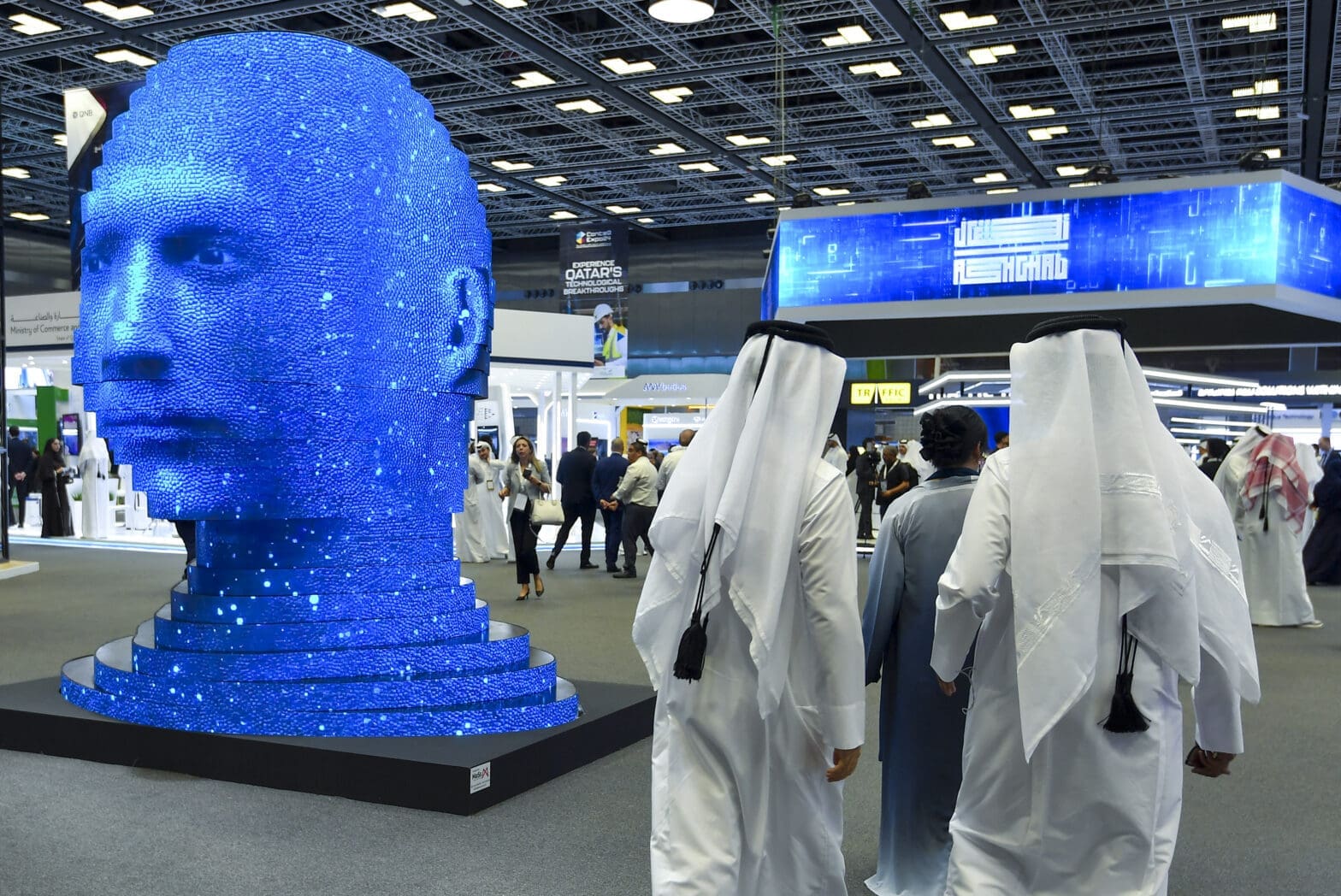





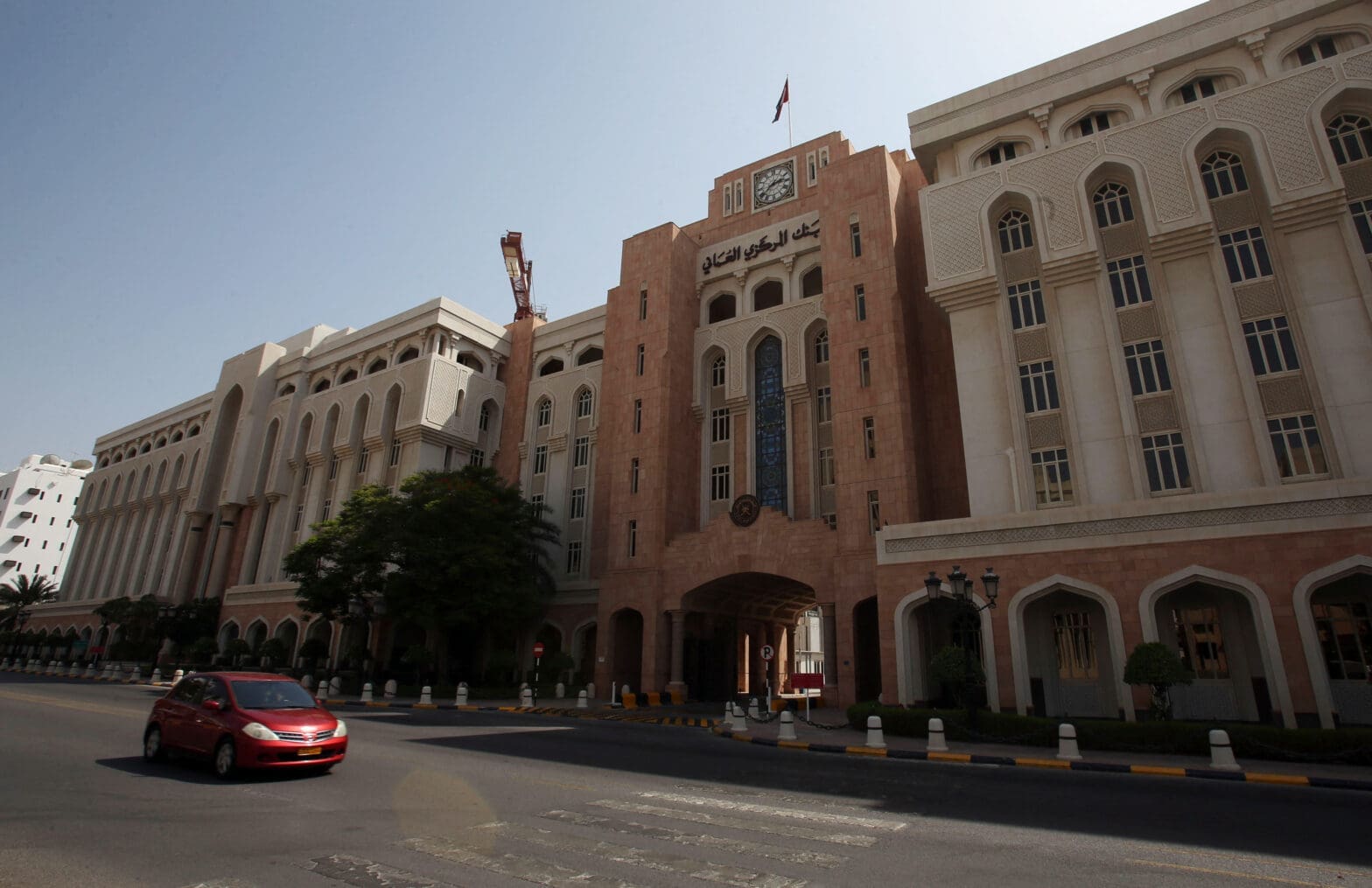
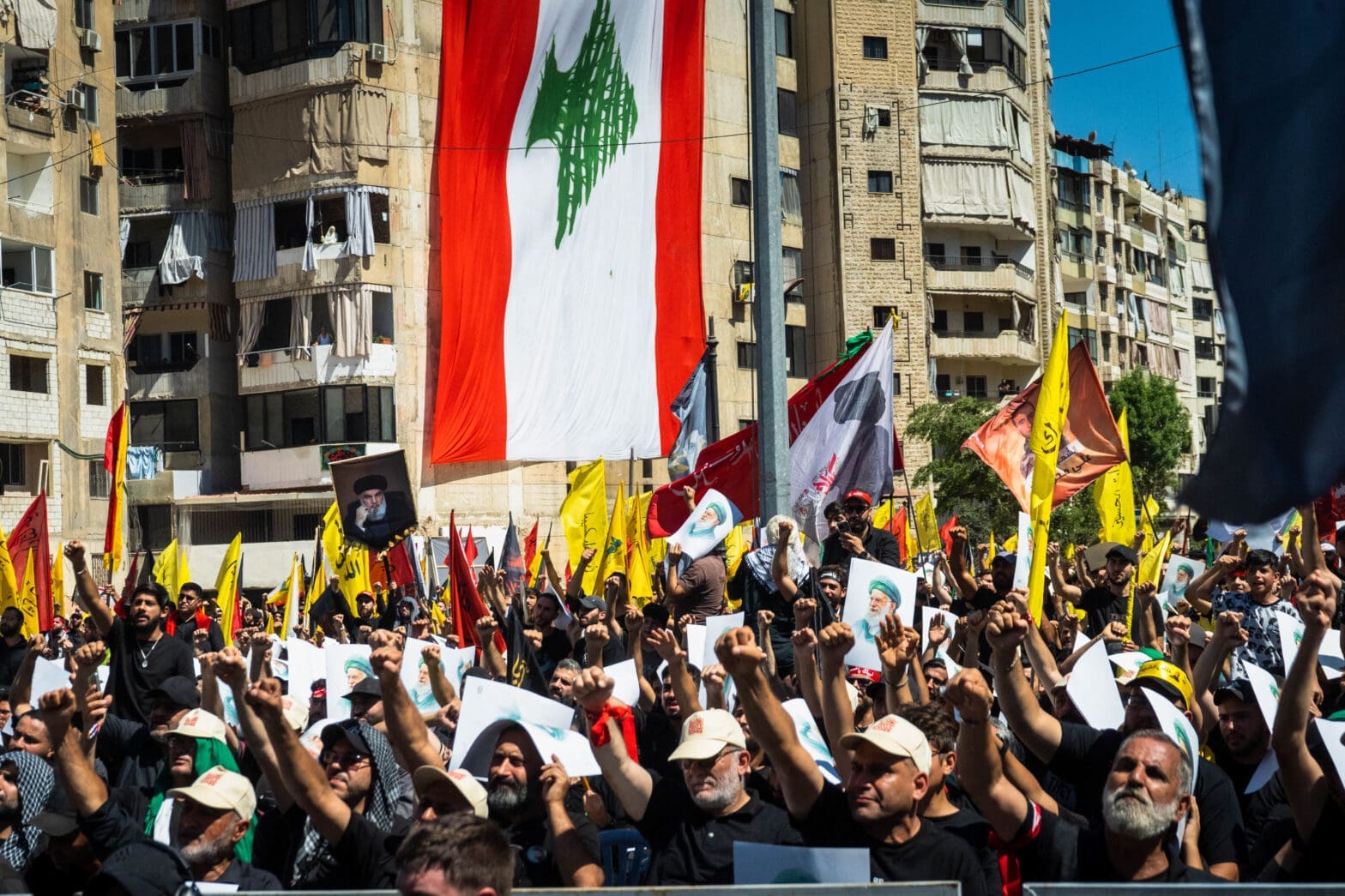











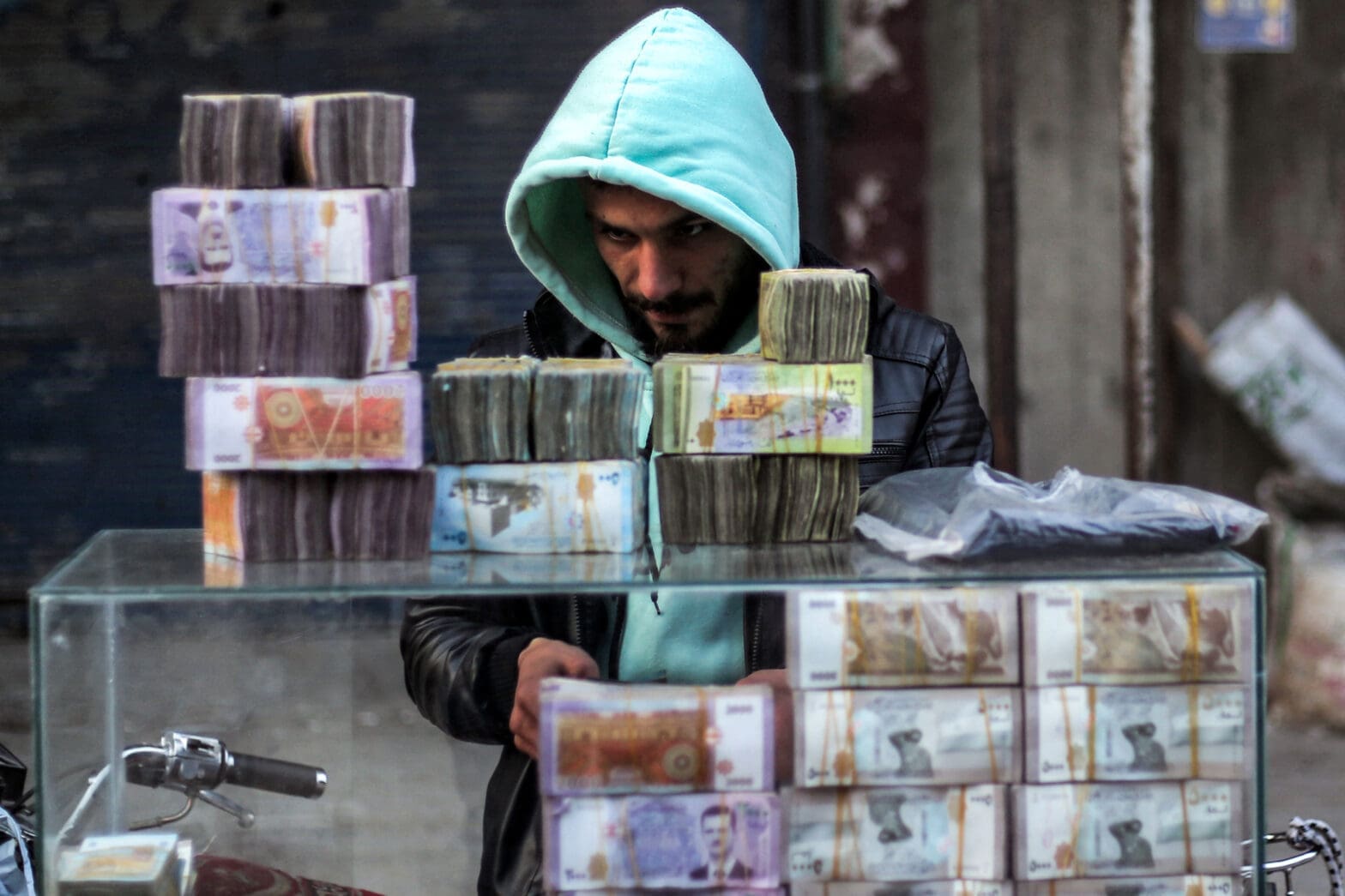


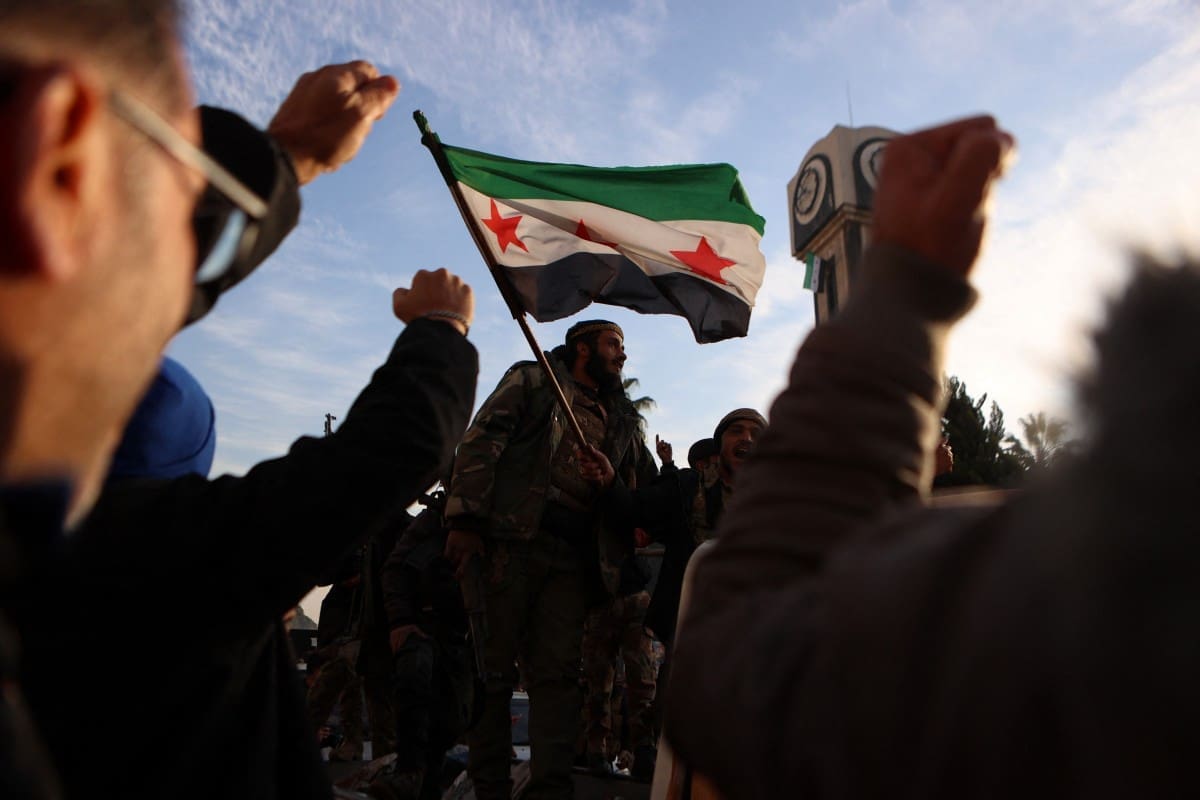


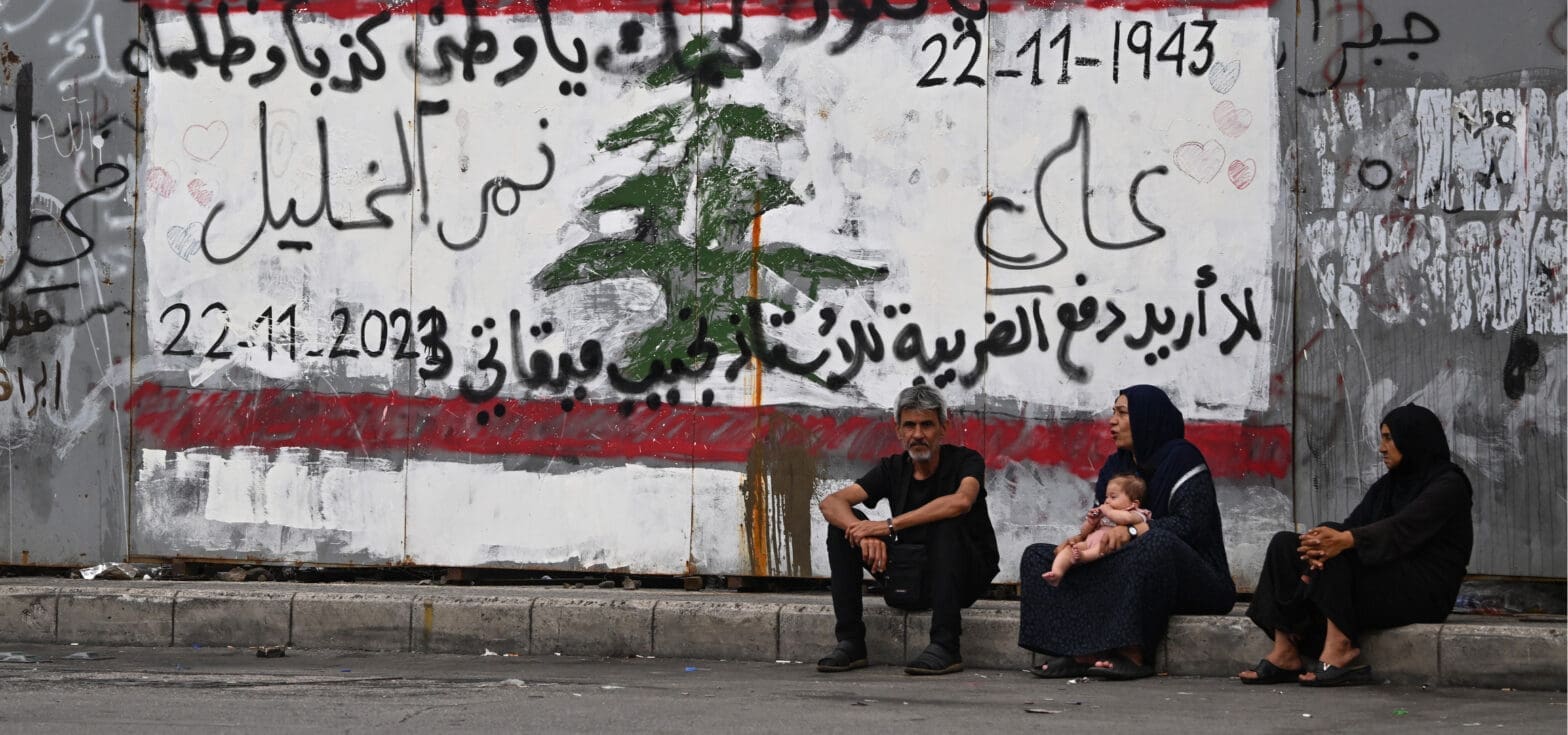


![Smoke billows during Israeli bombardment on the village of Khiam in south Lebanon near the border with Israel on June 19, 2024 amid ongoing cross-border tensions as fighting continues between Israel and Hamas in the Gaza Strip. (Photo by RABIH DAHER / AFP) / The erroneous mention[s] appearing in the metadata of this photo by RABIH DAHER has been modified in AFP systems in the following manner: [June 19] instead of [June 8]. Please immediately remove the erroneous mention[s] from all your online services and delete it (them) from your servers. If you have been authorized by AFP to distribute it (them) to third parties, please ensure that the same actions are carried out by them. Failure to promptly comply with these instructions will entail liability on your part for any continued or post notification usage. Therefore we thank you very much for all your attention and prompt action. We are sorry for the inconvenience this notification may cause and remain at your disposal for any further information you may require.](https://b2798871.smushcdn.com/2798871/wp-content/uploads/2024/08/AFP__20240619__34XG8W8__v9__HighRes__CorrectionTopshotLebanonIsraelPalestinianConfli-1568x1045.jpg?lossy=2&strip=0&webp=1)
